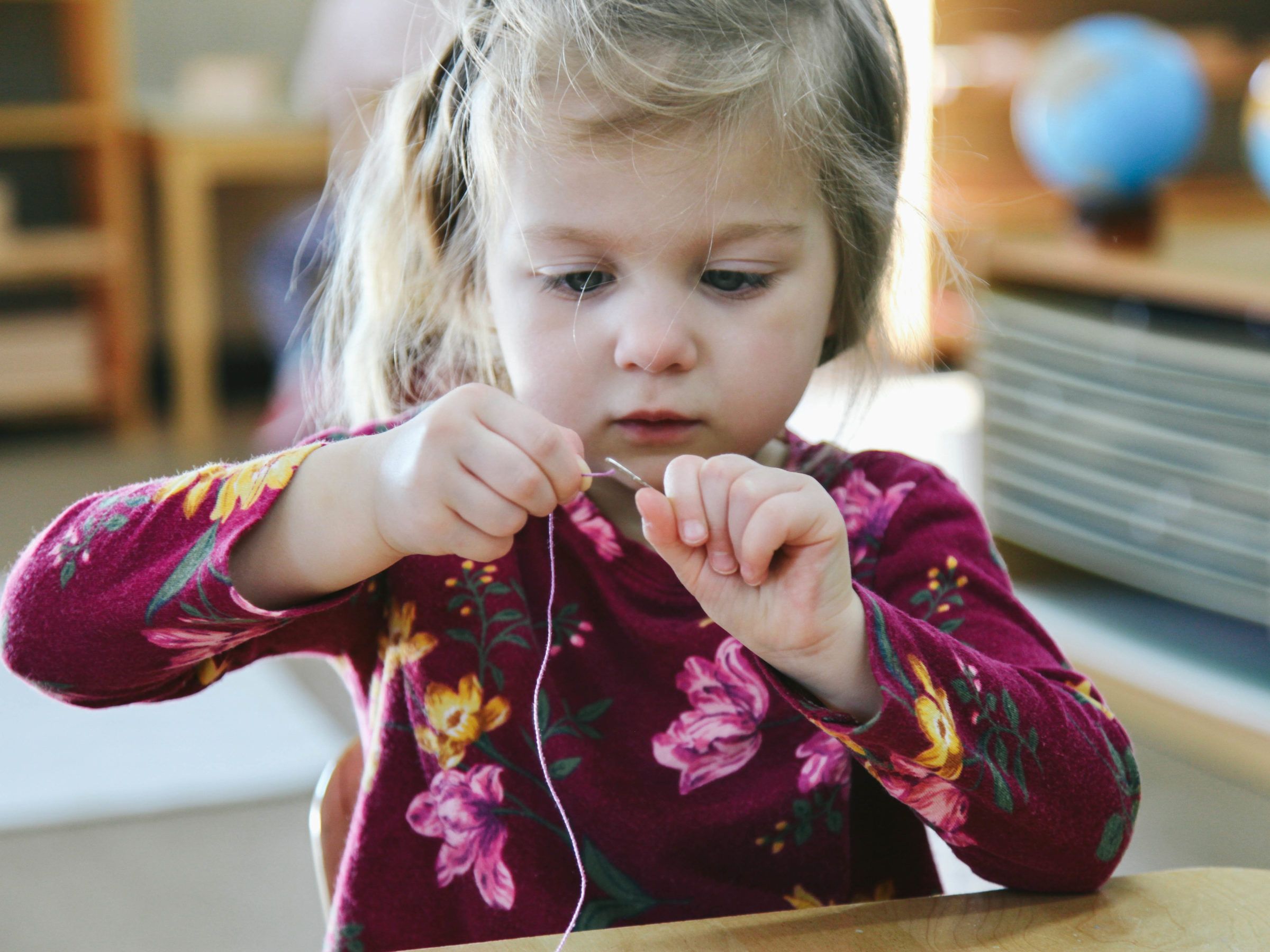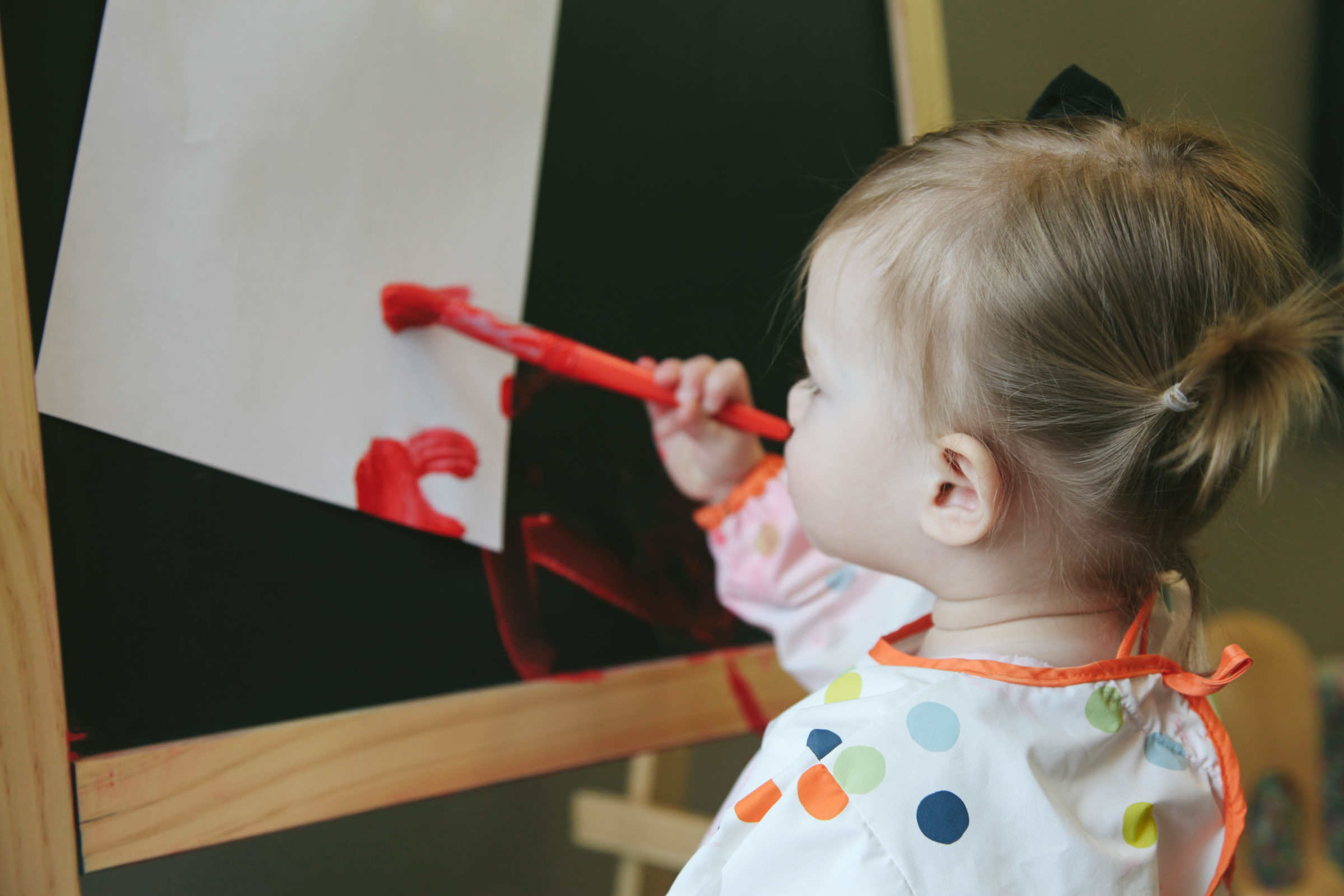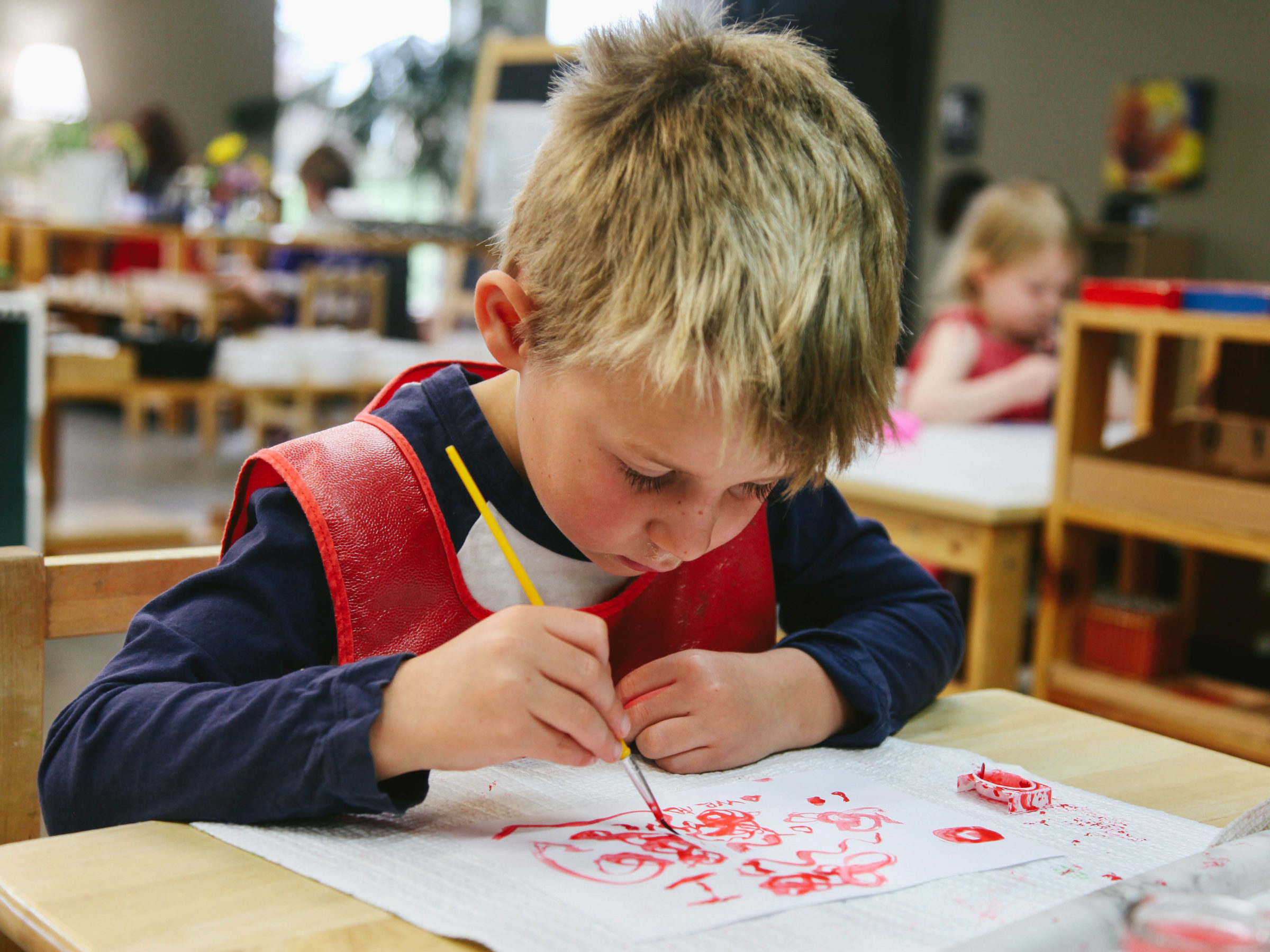Montessori Encyclopedia: Dish Washing
Montessori Activities
How do you use this material?
Dish Washing is a big material in the Practical Life area. It is presented to a child who is confident with pouring and able to follow a long sequence of work. Much like we do at home, a child washes the dishes that are dirtied through normal classroom activities, such as the plates from snack, or flatware used when a child was finishing the last few bites of their breakfast.
After putting on an apron, a child collects one pitcher of warm water, for scrubbing, and one pitcher of cool water, for rinsing. Just a bit of dish soap is mixed with the warm water. One, some, or all the dishes are washed, rinsed, and left to air dry.
As an aside, the dishes are sanitized prior to being re-used, but the children are diligent about scrubbing until each dish is thoroughly cleaned.

What is the child learning?
A child is learning to wash dishes. Children want to be just like us. For us, this is a chore, but for them, it is a way they can contribute, a way they can help their classmates. After all, if there were no plates, how would we enjoy snack or lunch together??
A child is learning that warm water creates suds, and cool water cuts suds.
A child is learning that after dishes have been dirtied, someone must clean them, and that someone can be me! I can care for my own belongings, and I can help others at the same time.
What does a child not know they’re learning?
A child is developing an internal sense of order when they’re following this long sequence. It takes a high degree of self-control to only collect one pitcher of cool water and one pitcher of warm water.
They’re coordinating the movements of their whole body in walking back and forth to the sink, sometimes carrying a full pitcher, and in balancing as they shift their weight from left to right as they move the dishes from one basin to the other.
As with so many Practical Life materials, the opportunity for repetition helps to develop strong concentration.

Finally, this is a very long process. Even if you choose to only clean one dish, which rarely happens as this is such an appealing work, preparing and tidying up this work takes several minutes even if you’re organized and efficient, two traits young children are still refining. This material develops the child’s will and task persistence, to see a process through to the end even after it’s lost its novelty. The completion of the whole work, from noticing dishes need to be washed through finding every last little drip, is immensely satisfying and helps to develop self-efficacy.
How can this be supported at home?
Children love to participate, and can often be helpful! When we encounter difficulties, though, is when we expect children to be able to do things the same as we do, with the same efficiency as we have, on our time schedule, and with our experience.
Even the youngest children can help with dishes. A child who is confidently walking can carry their whole place setting one piece at a time and place in the dishwasher. Adding tasks as a child grows increases attention to detail and following a longer sequence, as well as acknowledging how much a child has grown and is capable of now.
This progression can grow from putting their own dishes in the dishwasher, to rinsing off in a basin of sudsy water prior to placing in the dishwasher, to clearing the whole table, setting the table, and can even pave the way for preparing a meal for the family.
Written by:
Charlotte Snyder



